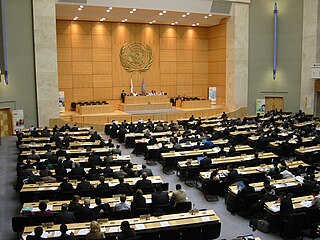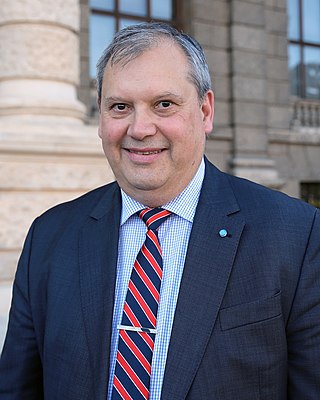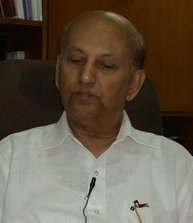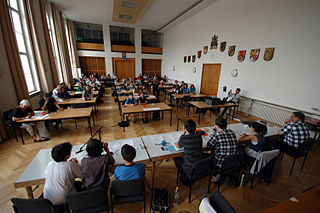
The United Nations Economic Commission for Europe is one of the five regional commissions under the jurisdiction of the United Nations Economic and Social Council. It was established in order to promote economic cooperation and integration among its member states.

The International Astronautical Federation (IAF) is an international space advocacy organization based in Paris, and founded in 1951 as a non-governmental organization to establish a dialogue between scientists around the world and to lay the information for international space cooperation. It has over 390 members from 68 countries across the world. They are drawn from space agencies, companies, universities, professional associations, museums, government organizations and learned societies. The IAF organizes the annual International Astronautical Congress (IAC). As of 2019, Pascale Ehrenfreund has served as the president of the IAF.

The World Summit on the Information Society (WSIS) was a two-phase United Nations-sponsored summit on information, communication and, in broad terms, the information society that took place in 2003 in Geneva and in 2005 in Tunis. WSIS Forums have taken place periodically since then. One of the Summit's chief aims is to bridge the global digital divide separating rich countries from poor countries by increasing internet accessibility in the developing world. The conferences established 17 May as World Information Society Day.

Dumitru-Dorin Prunariu is a Romanian cosmonaut. He flew in space aboard Soyuz 40 spacecraft and Salyut 6 space laboratory. He teamed with the Soviet cosmonaut Leonid Popov. The backup crew was made of Romanian candidate cosmonaut Dumitru Dediu and Soviet cosmonaut Yuri Romanenko.

The United Nations Institute for Training and Research (UNITAR) is a dedicated training arm of the United Nations system. UNITAR provides training and capacity development activities to assist mainly developing countries with special attention to Least Developed Countries (LDCs), Small Island Developing States (SIDS) and other groups and communities who are most vulnerable, including those in conflict situations.

The United Nations Office for Outer Space Affairs (UNOOSA) is an office of the U.N. Secretariat that promotes and facilitates peaceful international cooperation in outer space. It works to establish or strengthen the legal and regulatory frameworks for space activities, and assists developing countries in using space science and technology for sustainable socioeconomic development.

Udupi Ramachandra Rao was an Indian space scientist and former chairman of the Indian Space Research Organisation. He was also the Chairman of the Governing Council of the Physical Research Laboratory at Ahmedabad and Nehru Planetarium at Bengaluru and chancellor of the Indian Institute for Space Science and Technology (IIST) at Thiruvananthapuram. He is known as "The Satellite Man of India". He pioneered India's first satellite launch Aryabhata in 1975.
The International Cooperative Alliance (ICA) is a non-governmental cooperative organization founded in 1895 to unite, represent and serve cooperatives worldwide. The ICA is the custodian of the internationally recognised definition, values and principles of a cooperative in the ICA Statement on the Cooperative Identity. The ICA represents 315 co-operative federation and organisations in 107 countries.

The United Nations Committee on the Peaceful Uses of Outer Space (COPUOS) is a United Nations committee whose main task is to review and foster international cooperation in the peaceful uses of outer space, as well as to consider legal issues arising from the exploration of outer space.
The Student Global AIDS Campaign (SGAC) is an advocacy group with more than 85 chapters at high schools, colleges, and universities across the United States. The group is committed to bringing an end to HIV and AIDS in the U.S. and around the world, and uses a wide variety of tactics to achieve its goals, including education on campuses, letter-writing and calling campaigns to decision-makers, public demonstrations, media work, and other activist tactics.
The Association of Polar Early Career Scientists (APECS) is a worldwide association of early career scientists interested in the polar regions and the cryosphere generally. Its mission is to raise the profile of polar scientists by providing a continuum of leadership that is both internationally and interdisciplinarily focused, and to stimulate collaborative projects. Several countries have their own APECS chapters that focus on the needs and ideas of scholars country-wise.
Space policy is the political decision-making process for, and application of, public policy of a state regarding spaceflight and uses of outer space, both for civilian and military purposes. International treaties, such as the 1967 Outer Space Treaty, attempt to maximize the peaceful uses of space and restrict the militarization of space.
SpaceTurk, founded in 1998 as the Turkish Space Research Group, is a non-profit and volunteer group dedicated to working on space research. The group's activities so far are:

The International Forestry Students’ Association (IFSA) is an international network of students in forestry-related sciences. It is a globally organized and locally operated student organisation connecting forest and related science students to peers, forest-related organisations, and policy platforms. The IFSA has 130 member associations in over 50 countries. IFSA is a non-political, non-profit, and non-religious organisation that is entirely run by students.

The International Pharmaceutical Students' Federation (IPSF) is a non-governmental, non-political and non-religious organisation that represents pharmaceutical students, pharmacy students and recent graduates from all over the world. It was founded in 1949 and it is the oldest faculty-based student organisation. IPSF represents over 500,000 individuals in more than 100 countries with 127 different representative pharmacy student member organisations.
The International Society of City and Regional Planners (ISOCARP) is a non-governmental global association of professional city and regional planners.

Youth councils or parliaments, are a form of youth voice engaged in community decision-making. Youth councils are appointed bodies that exist on local, state, provincial, regional, national, and international levels among governments, non governmental organisations (NGOs), schools, and other entities. Groups that include children often call themselves children's parliaments and are paired with youth parliaments of older kids.
Slovak Space Policy Association (SSPA) is a non-governmental organization, which deals with space security, law and economic aspects of the peaceful uses of outer space. It is the only fully professional think tank in the area of space policy in Slovakia. Its main mission is to promote public discussion on space-related themes that affect society, science and research, economy, and also foreign and security policy objectives of Slovakia. SSPA publishes its own in-house publication SSPA Reports, which has been granted ISSN 2585-755X.

Carmen Victoria Félix Chaidez is a scientist, engineer, and the first Mexican to work on simulations for future Mars missions with space analogs. She has been credited in part for creating the Mexican Space Agency and promoting space-related careers in her native country. Her work has been recognized by her home state of Sinaloa and Quien magazine named her as one of 50 Mexicans transforming the country in 2017.

Manuel Ntumba is a Congolese-Togolese inventor, advisor, geostrategist and geospatial expert. He is the Founder of the global public-private partnership Tod'Aérs Global Network [TGN].












